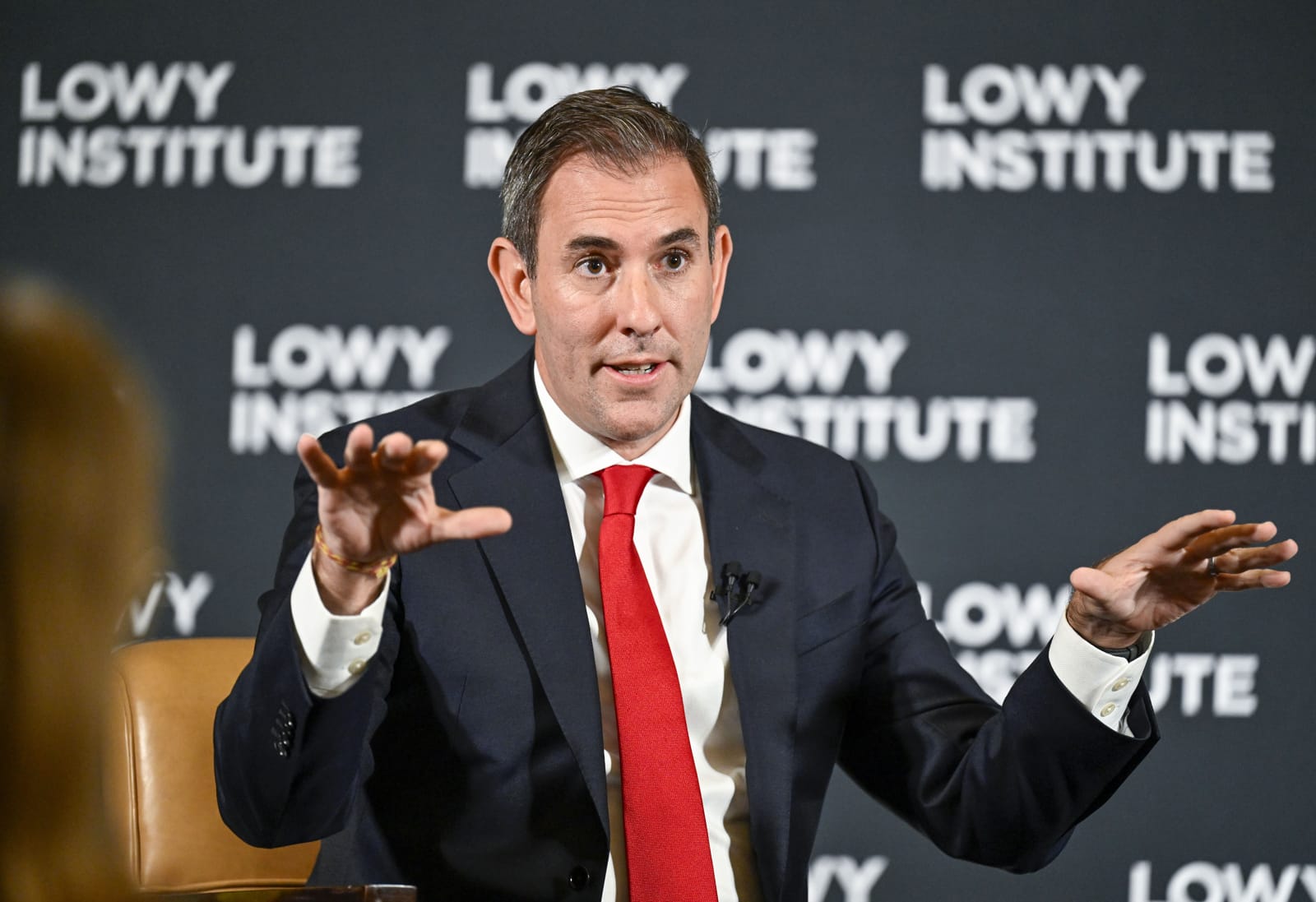




Australia's Treasurer, Jim Chalmers, has vowed to steer the country's economy to a 'soft landing' as it faces various economic challenges. Chalmers made this commitment during a speech, where he outlined his plans to prioritize low unemployment, recovery in household spending, wage growth, and inflation within the Reserve Bank's target band. He emphasized the need for careful economic management and highlighted the importance of aligning economic and security interests [c465f83d].
Chalmers' commitment comes as he prepares to deliver the upcoming budget, which will focus on economic security, renewable energy, and national resilience. He has been working on the budget since December, considering proposals from colleagues and focusing on key themes. Chalmers aims to transform the energy sector by increasing the share of renewables and considers the impact of the budget on his own electorate. He hopes to achieve a second successive surplus but acknowledges the challenges ahead. Chalmers aims for real wage growth, inflation moderation, and low unemployment, while striving to create a fair economy [1bc2f1d7].
The upcoming budget will also prioritize national security and economic resilience in the face of a challenging strategic environment. It aims to align economic and national security interests, maximize advantages in the net zero transformation, and make Australia an island of reliability in an uncertain world. The budget will include investment in quantum computing and targeted support for industries that meet specific criteria. The article emphasizes the need for public and private investment to unlock opportunities in the changing global economy [1bc2f1d7].
In addition to the economic challenges, Chalmers also highlighted the need to address cultural problems and social change. He emphasized the importance of building Australian policymaking practices that can manage healthy and productive collaboration. Chalmers believes that public service officers at all levels have a role to play in this endeavor. He highlighted the need for the public service to attract more talent from industry, research, and civil society. Additionally, Chalmers stressed the importance of strengthening representation and inclusion of people from different backgrounds and views in the policy process. Chalmers believes that incentivizing a more collaborative culture across the public service will make a difference for Australia in integrating security and economic policy in a more contested world [fc216ba4].
However, not everyone shares Chalmers' optimism. In an opinion piece by Dean Smith in The West Australian, he cautions against trusting a Labor Government with an economic plan. Smith refers to Jim Chalmers' recent plan to bring down inflation and argues that the past two years have shown that a Labor Government cannot be trusted with a plan. Smith highlights the importance of economic stability and warns against the potential risks of a Labor Prime Minister presenting an economic plan [f48d1651].
According to a Resolve survey, 40% of voters favor the Coalition as the best party to manage the economy, despite the Coalition's failure to deliver surpluses and leaving the country with a trillion-dollar debt. The survey also reveals that more voters want someone other than Labor or Liberal to manage the environment and climate. The article emphasizes the need for strong bipartisan action on climate change and the economic impact of emissions reduction targets. It also discusses the illusion created by Peter Dutton that renewable energy is the cause of higher energy prices, highlighting that solar panels are now cheap and getting cheaper [d8671999].
The article also touches on various other topics, such as the cost of living, vacant properties, the Oxford Street cycleway, high-speed e-bikes, private schools, public schools, and extremism. It calls for a vacancy tax or levy on vacant properties, discusses the human rights complaint about the Oxford Street cycleway and the danger posed by high-speed e-bikes, mentions the funding of private schools and the gap between private and public schools, and congratulates Bruce Spence on his Equity Lifetime Achievement Award. The article also calls for the media to condemn both pro-Israeli and pro-Palestinian extremism and ends with a lighthearted discussion about falling off things after the age of 60 [d8671999].